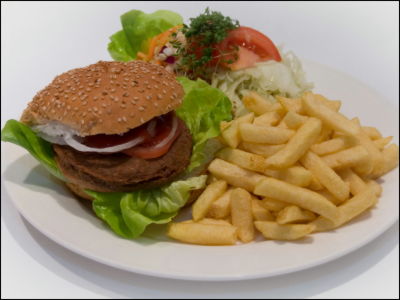Why are salty things good? Salt proved to be habitual in tobacco and narcotic grade

A researcher who insists on the theory that salt has the same addiction as tobacco and narcotics announced the results of experiments he had done.
Why salt is addictive: It stimulates the brain cells just like cigarettes and hard drugs | Mail Online
Despite increasing the risk of hypertension and heart disease, it was announced in the journal "the journal Proceedings of the National Academy of Sciences" to solve the question of why it is very difficult to reduce salinity from daily diet The research result shows one answer.
In the experiment, the mice were divided into two groups, one group fed a salt-reduced food and the other group gave a drop of saline. Then we observed the activities of the brains of the two groups and compare them with the mice given normal food.
We observed also the movement of the mouse brain when giving a mouse a saltine water discontinued 3 days as much as possible to drink salt water. When mice are thirsting for salt, proteins from brain cells related to addiction to nicotine, heroin, alcohol and other substances are generated.
Professor Derek Denton of the University of Melbourne, UK, who researched, "This experiment showed that the craving for salt is caused by the neurological structure in causing addiction of cocaine and heroin, Then it turned out that it recognizes that the brain has taken in salt into the body much sooner than it is absorbed in the body. "
In addition, during this experiment, it was also announced that appetite could be somewhat diminished by partially reducing the joy of eating salty foods, given spices to mice in conjunction with salt.
Professor Denton pointed out that the addictive nature of salt is related to instincts when surviving in the process of evolution. It is said that salty food is very addictive and may feel delicious because it increases the probability of survival if it can replenish within 5 to 10 minutes after the shortage of water or salt.

Dr. Wolfgang Liedtke of Duke University, who also worked in the same study, commented, "We are pleased to see that blocking dependence might reduce the desire for salt .
Apart from studies on toxicity to salt, research conducted on 6,500 subjects conducted at the University of Exeter, which was conducted in recent years, reduces heart disease and the risk of prematurely falling when reducing the salt level during meals We did not get any strong evidence of that. In addition, there is also an example that raising the risk of death of several heart disease patients by eating with reduced salt.
An expert recommending salt reduction against this research result argues that "Because salt reduction needs to be tackled over a long period of time, we can not sufficiently measure the effect of salt reduction only during the experiment There seems to be room for discussion as to whether or not to hurt your health by taking over too much salt, so it is awaited to find out that it is really a proper amount of salt besides salt toxicity.
Related Posts:







